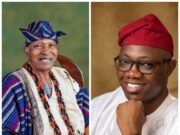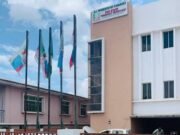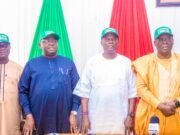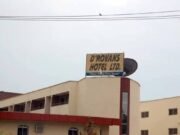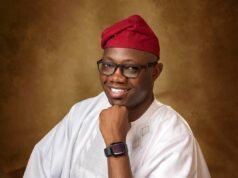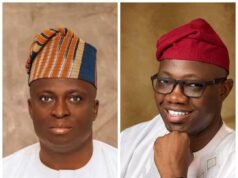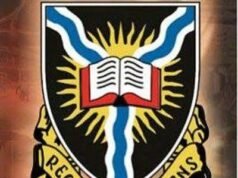Intra-party crisis in Nigeria predates the country’s independence. In fact, it is as old as the first political party in the country. Aminu Kano was the leader of the progressive faction of the defunct Northern People’s Congress. At the height of the disagreement with the mainstream faction, he left with his followers to form Northern Element Progressive Alliance.
Ladoke Akintola’s faction was pro-capitalist as against the mainstream socialist ideology of the then Action Group. We knew the outcome. Akintola’s faction went ahead to form UPP and then NNDP. Similar event played out in 1979 when Ibrahim Waziri left Nigerian People’s Party to form Great Nigeria People’s Party over the issue around the presidential candidacy just like the issue between Nyesom Wike and Atiku Abubakar.
Even, of recent, in Oyo State, some aggrieved members of the ruling APC, went ahead to join ADC, ahead of the 2019 election. This is a general phenomenon across the country. We should also remember the incident of the N-PDP which was an integral part that formed APC.
The tradition often takes two forms; defecting to another party,or boycotting support for the party while maintaining low-profile despite remaining in the political party.
However, the G-5, also called the Integrity Group, adopted a very unique approach. They remain formidable and the most outspoken faction of PDP. They opt for a parallel campaign, for their camp and notably, against the leadership and the presidential candidate of the party. They insist on remaining in the party, and indeed, the party continues to have problem with disposing of the faction.
The most intriguing part is that both the mainstream of the party and the aggrieved faction are in the dilemma. None of them appears to be winning without the other. The embattled presidential candidate and the party know it is very costly to let go of the five states owing to their strategic nature. The five states cut across three geo-political zones, and four of them are traditional PDP stronghold since the beginning of this republic.
However, the G-5 are also sleepless over their chances as a group and as individual governors. As a whole, their desire is to see the presidential candidate of their party losing, while they and the PDP members in their respective states win as well as the presidential candidate of another party they support, but yet to be announced. While, Nyesom Wike, the leader of the group, is trying to buy more time. It seems the group is losing it very fast as the elections are less than two weeks from now.
Out of the five, four are two-term governors whose tenures end in May 2023; only one is the first-term governor seeking re-election for the second term – Seyi Makinde (Oyo). Also, out of the outgoing governors, one is not contesting at all in the coming elections – Nyesom Wike (Rivers), who is also the leader of the group. Samuel Ortom (Benue), Ifeanyi Ugwuanyi (Enugu) and Okezie Ikpeazu (Abia) are vying for senatorial seats. Therefore, the immediate goals of the five differ, and this makes a consensus almost impossible.
The following are the primary objectives of the group:
Atiku/PDP losing presidential election;
The four vying for various offices winning;
All PDP candidates in their states winning;
The presidential candidate they support should win.
Looking at the current situation, the four objectives can never be achieved together; instead, some would be achieved, while others would go another way round. In fact, each of these governors would have to choose as individuals, not as a group.
Elections into the national assembly (Senate and the House of Representatives) and the presidency come first and hold concurrently. Apparently, the presidential election is a three-man race. Therefore, the G5 would be left with two options, Tinubu and Obi, if the group sticks to its gun.
With the prevailing ignorance and illiteracy among Nigerian voters, it would be very difficult for most of them to select different political parties on day one of the election. Most of them are likely to vote for the same parties for presidency and national assembly. This has been the pattern of elections since 1979 when Nigeria adopted presidential system.
Therefore these governors might have their people lose scandalously if they opt for another party for the presidency.Then, the three of them vying for the senate would also have a very tough time. A sitting governor losing senatorial and rep seats is always a major setback for that governor. Currently, APC has all the senators and most of the rep members from Oyo State. And just like any other governor, Makinde would not want this to repeat itself second time. Therefore, Makinde and the rest of the group supporting Tinubu would come with some dire consequences as those who would win on APC platform would not express their allegiance to the governors unless they defect to APC properly.
Ortom and Wike are the most outspoken of the governors and have consistently spoken against Atiku openly. In fact, Ortom has severally spoken highly of Peter Obi and his ambition.Considering Labour Party comes with another dilemma; what if Obi does not win? Even if they win all the seats in and from their states, and their choice presidential candidate fails, it would still be a serious reproach, especially if Atiku eventually emerges. These leave the group bewildered as per the direction to take. It looks like the group may not openly opt for any presidential candidate, especially as a group. Therefore, each may have to negotiate differently to its advantage.
The G5 winning their states means Atiku is likely to win in those states too; opting for Tinubu may lead to losing significant seats in the national assembly to APC; rooting for Obi may mean their choice presidential candidate might not win; but being silent and negotiating individually might minimize possible loss to the group.



